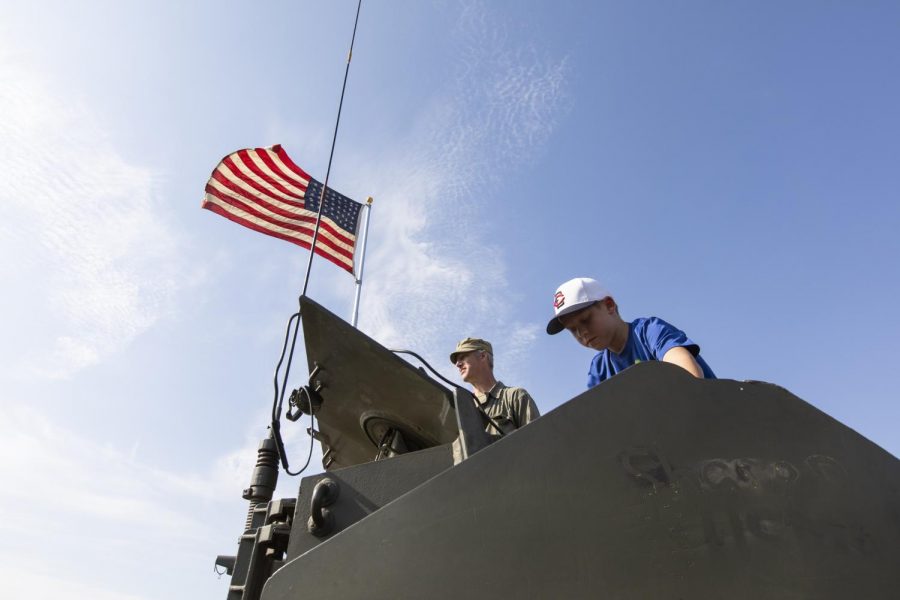‘Operation Anvil’: World War II reenactment serves as history lesson
October 1, 2019
It’s not every day you hear the sounds of tanks and gunfire in Bowling Green, but that’s exactly what took place Saturday.
Around 300 people gathered at Phil Moore Park for “Operation Anvil,” a World War II reenactment hosted by the nonprofit Honoring Our Heroes. A group of historians who have attended reenactment battles across the country founded the organization two months ago with hopes to preserve military history.
Ron Cummings, executive director of the nonprofit, said the reenactments are intended to remind us of our past and promote respect toward veterans.
“We are paying homage to veterans who fought for our freedoms,” Cummings said. “What we want to do is share, show, educate and honor.”
Operation Anvil was a battle in southern France between the Allies and Germany in 1944. It just so happened Bowling Green features terrain very similar to the south of France, Cummings said, which made it a perfect reenactment site.
After an opening ceremony, around 100 reenactors fitted with authentic military uniforms and replica weapons stationed themselves in the park’s large field. Two battle reenactments took place, one at 10 a.m. and the other at 2 p.m.
Smoke filled the air, and tank guns fired back and forth between American and German soldiers as onlookers watched and took photos. Young children sat on their parents’ shoulders, intently eyeing the scene.
A B-17 bomber and P-51 Mustang fighter plane, which happened to be in town for the weekend, flew overhead, placing onlookers directly in the heat of battle.
Rick Dickerson, president of Honoring Our Heroes, served as an announcer, detailing to the crowd what was happening during each phase of the 45-minute battle. A veteran himself, Dickerson served along the Berlin Wall.
“We want to teach in a way that allows the younger generation to understand,” Dickerson said. “We want people to understand what military life is like and how the soldiers would live at the time.”
Authentic American and German military camps were set up at the site, and the public was allowed to walk through and speak with reenactors before and after each battle. Vendors were also present, selling military memorabilia such as uniforms and other artifacts.
Robert Decker, who collects WWII era military items and participates in reenactments to be around like-minded friends, acted as a German paratrooper in charge of the opposition force.
“We hope everyone understands this is not glorifying war in any way,” Decker said. “We simply want the public to see the tactics and maneuvers of the U.S. Army of World War II.”
Paul Correa, who also acted as a German paratrooper, said he hoped the event might impact the community in a positive way.
“Our intent is to honor veterans, educate the public about the history of the conflict, weaponry, vehicles and equipment and simply entertain,” Correa said.
The nonprofit plans to host future reenactment battles in Bowling Green so long as the public supports it.
Features reporter Kelley Holland can be reached at kelley.holland872@ topper.wku.edu.












